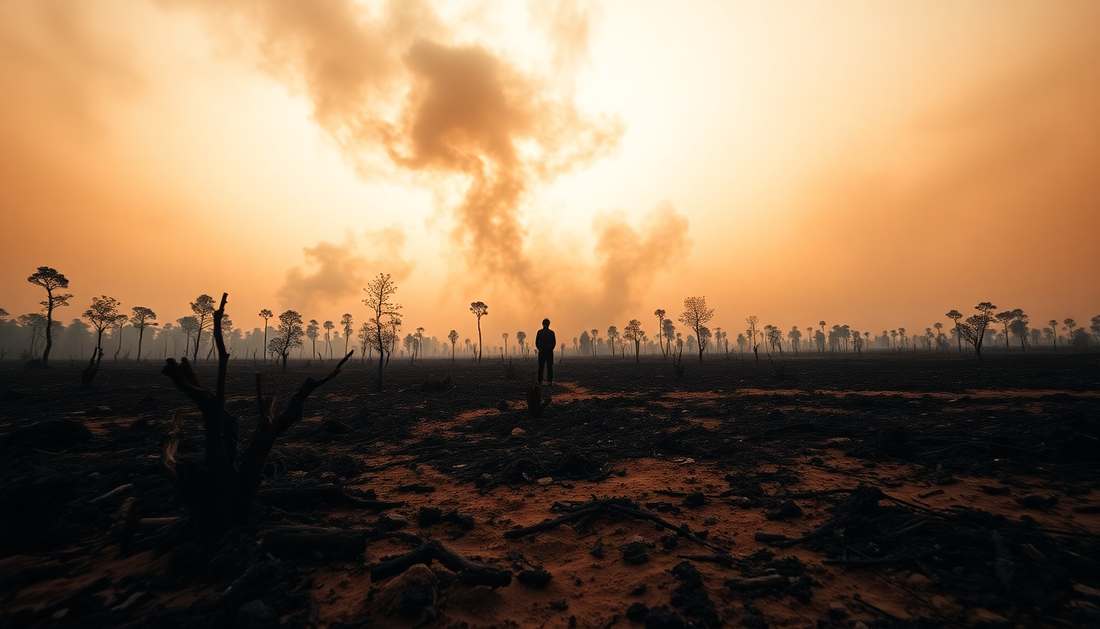Indonesia's lush landscapes and diverse ecosystems have long been the envy of the world, but in recent decades, a disturbing trend has emerged that threatens to undo centuries of natural balance. The practice of soil burning, once a traditional agricultural method, has spiraled out of control, leaving a trail of environmental devastation in its wake.
The Origins of Soil Burning
Soil burning has been a part of Indonesian agricultural practices for centuries, used as a means of clearing land for cultivation and rejuvenating the soil. In the past, these practices were carefully managed and limited in scope, allowing the land to recover and maintain its ecological integrity. However, as the demand for agricultural land has grown, so too has the scale and intensity of soil burning.
The Environmental Consequences
The environmental consequences of this unchecked soil burning are catastrophic. Deforestation has accelerated at an alarming rate, with vast swaths of pristine rainforest being reduced to ash. The resulting air pollution has blanketed entire regions, causing respiratory issues and contributing to global climate change. Moreover, the loss of biodiversity has been staggering, with countless species of plants and animals being pushed to the brink of extinction.
Economic Implications
The short-term economic gains from soil burning may seem tempting, but the long-term costs are staggering. The environmental degradation caused by these practices has had a ripple effect on the global economy, with Indonesia's exports and international reputation taking a significant hit. Furthermore, the health and well-being of the local population have been severely compromised, leading to increased healthcare costs and lost productivity.
Governmental Failures
Despite the overwhelming evidence of the environmental and economic consequences of soil burning, the Indonesian government has struggled to implement effective policies and enforcement mechanisms. Regulatory shortcomings, political corruption, and a lack of political will have all contributed to the continued destruction of the country's natural resources.
International Perspectives
The global community has taken notice of Indonesia's soil burning crisis, with international pressure and sanctions being applied in an effort to curb the destruction. However, the response has been uneven, with some nations taking a more proactive approach than others. The need for a coordinated, global effort to address this issue has never been more pressing.
Sustainable Alternatives
Fortunately, there are a number of sustainable alternatives to soil burning that offer a path forward. Eco-friendly agricultural practices, such as no-till farming and agroforestry, have been shown to be both environmentally and economically viable. Additionally, technological innovations, such as precision farming and renewable energy solutions, hold the promise of a greener future for Indonesia's agricultural sector.
A Call to Action
The soil burning crisis in Indonesia is a stark reminder of the fragility of our planet and the urgent need for environmental stewardship. By taking action now, we can not only protect Indonesia's unique ecosystems but also set an example for the rest of the world. It is time for all of us to take responsibility for our impact on the environment and work towards a more sustainable future.
Conclusion
Indonesia's soil burning crisis is a complex and multifaceted issue that requires a comprehensive, global response. By addressing the historical context, environmental consequences, economic implications, and policy failures, we can begin to chart a path forward that prioritizes ecological preservation and sustainable development. The time to act is now, for the sake of Indonesia's people, its biodiversity, and the health of our shared planet.

